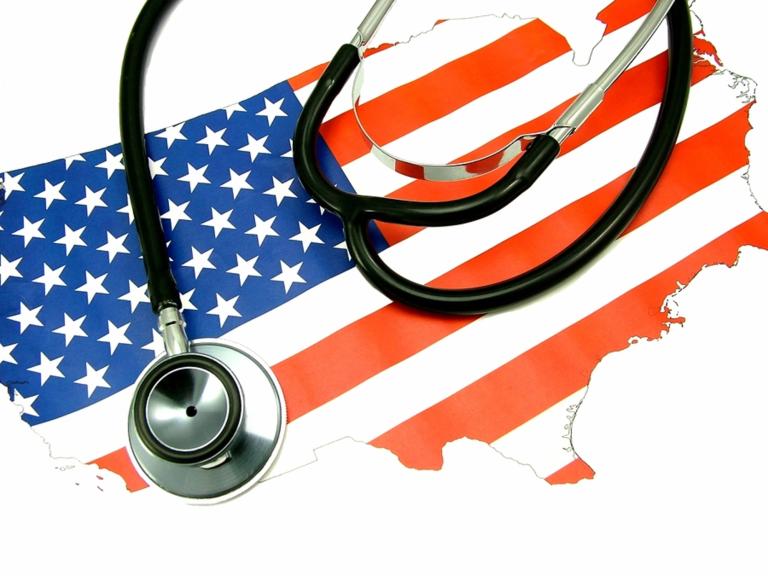Health and Well-being
International students face changes in nearly every aspect of their life when they leave home to study abroad. Changes in diet, sleeping patterns, climate, culture, and their personal support system can combine to create stress that will affect their health and well-being. Students should provide a copy of their medical records, including immunizations and vaccinations, to the health center when they arrive on campus. These records should show all medicines or treatments the student is using. This will help doctors, dentists, and other health care professionals provide safe care if the student has a new health problem.

Health Care in the U.S.
Health care and counseling in the U.S. may be quite different than at home. Unlike many other countries, the U.S. does not provide socialized health care. Most colleges and universities, however, have a health center or an agreement with a local health provider where their students can obtain medical and mental health services. Sometimes parents tell their student to seek help or medication that is not available on campus or in the local community. Eastern medicine and treatments are increasingly available in the U.S., but they are not always available in small towns. They might not be available near campus. To find Eastern treatments, including Traditional Chinese Medicine, students should ask for guidance from the International Student Services office. Note: Some insurance will not cover Eastern medical treatments; students should contact their insurance company to find out if the cost will be covered by insurance.
Paying for Health Care

Health care in the U.S. is expensive, and international students are not eligible for government assistance for medical care. It is important for international students to have health insurance coverage that will help pay for those costs. At many schools, especially large universities, health insurance will be required for international students, and students may purchase insurance through a university plan. If the school does not require health insurance or provide an optional insurance policy, it is still important that your student have insurance. The international student office will be able to provide guidance on where your student can obtain it.
Where to Seek Care
For most non- emergency situations, international students should first seek care through campus-provided health services. They will likely be seen by a doctor who is a generalist--a doctor who has a wide knowledge of medicine. At a campus health service, the medical staff will be especially aware of illnesses, injuries, and concerns that are most common among young adults That doctor will determine basic care and can provide treatment of most illnesses or injuries. If more sophisticated or intensive care is needed, the doctor will refer the patient to a specialist. Aside from campus health services, there are several other options for seeking care:
- Calling the clinic or doctor’s office is the right step if the condition is not serious and the patient can wait for an appointment. Many clinics have a “Nurse Line” to help the patient determine if they need to be seen quickly.
- Urgent Care is the best option if the clinic or doctor’s office is not open (example: at night or on weekends) and if the situation is not life-threatening but requires immediate attention.
- Emergency Room care is needed for conditions that come on suddenly and severely. This is the place to go for treatment that is only available in a hospital setting or if the situation is life threatening.
A chart on this website will help identify whether Urgent Care or Emergency Room care is needed: Click Here.
Emergency Assistance
If students are seriously injured, ill, or feel that they or a friend is in danger, they should call for emergency assistance by dialing 911 on a cell phone or landline phone. The 911 service is available anywhere in the U.S. and should be used for immediate assistance from the police, fire department or ambulance. For additional information about dialing 911 in an emergency situation, see the Safety Tips: Click Here.
Stress and Anxiety
Leaving home and studying abroad can be both exciting and challenging for international students. In the U.S., it is common and helpful for students to talk to counselors to help them understand how stress affects their life. Universities have counselors on staff who understand the issues that college students face and can help them identify ways to reduce their stress and worry less. Students also can talk to their academic adviser or to the international student services office for guidance on where to get help. International Student Services staff may know of someone who is familiar with cultural issues that will be helpful in seeking assistance for an international student. Faculty and residential staff are also able to provide guidance. The most important factor is that students ask for help. They can do that by saying that they are overwhelmed, or they feel like it’s “all too much right now.”
Most students will feel homesick at some point. Missing family and friends from home is typical when students arrive at the university, but it also is common for students to be unhappy when they have been away for a few months. Missing holidays or other special events at home can increase homesickness.
Staying Healthy
When students leave home, they become responsible for their daily health practices. In a new setting, they may forget some of the basic practices for staying healthy. Sleep: Research has shown that getting enough sleep is most important to staying healthy. Students who sleep eight hours a night are the most likely to get good grades and avoid illnesses. Nutrition: Students should eat a variety of fresh and healthy foods, avoiding too many foods high in calories, saturated fats, or sugars. Exercise: Getting at least 2-½ hours of exercise a week will keep students fit and will help reduce stress and anxiety. Exercise classes or team sports will also help them find new friends. Avoid substance abuse: As mentioned in the section on U.S. laws (HERE), students cannot legally drink in the U.S. if they are younger than 21 years old. Even for those who can legally drink, it is important to avoid excessive drinking. The recommended limit for men is no more than two glasses of alcohol at one time and for women, just a single glass of alcohol. Long-term smoking can have serious consequences, and even short-term smoking reduces a person’s ability to prevent illness. Drug use is another area of concern. Students should not take any drugs that are not prescribed and monitored by a physician. They should never use drugs that were prescribed to someone else. Sexual relations: If students are having sexual relations, they should protect themselves from an unwanted pregnancy and from sexually transmitted infections. The college health service will have information about birth control and avoiding sexually transmitted infections. Students should take steps to prevent unwanted sexual relations by being alert and aware of their surroundings. When going to a party, they should go with people they trust, and they should have a plan for getting home safely. That may mean having cash to pay for a ride home or someone to call if they need help.